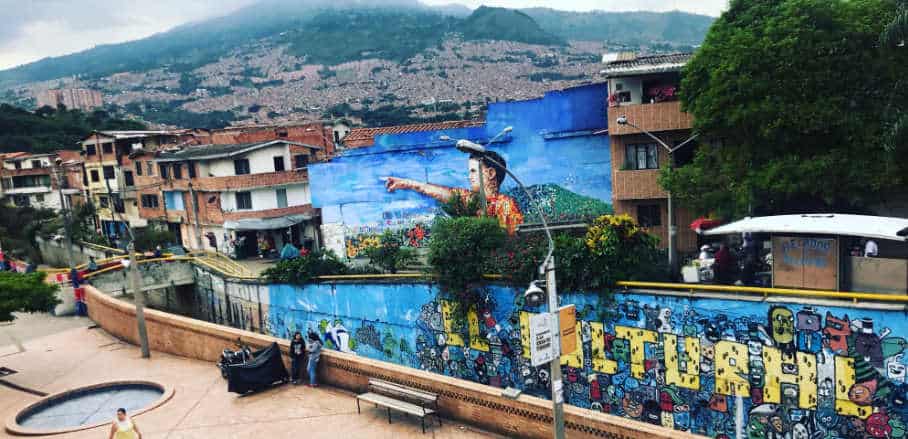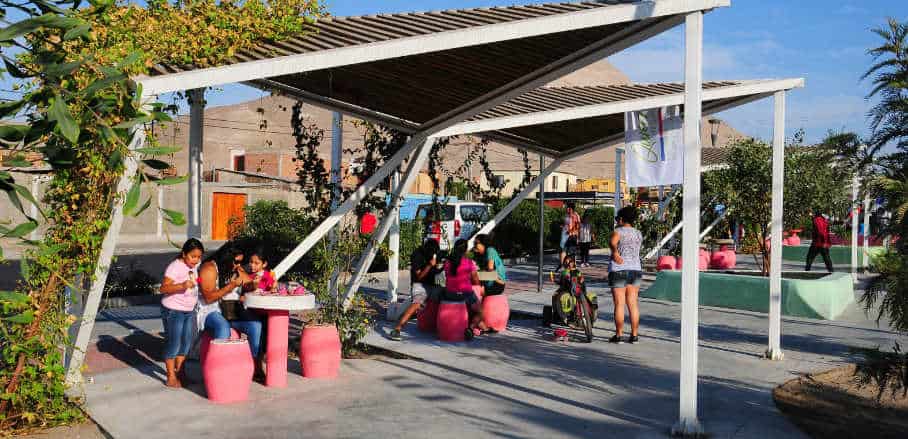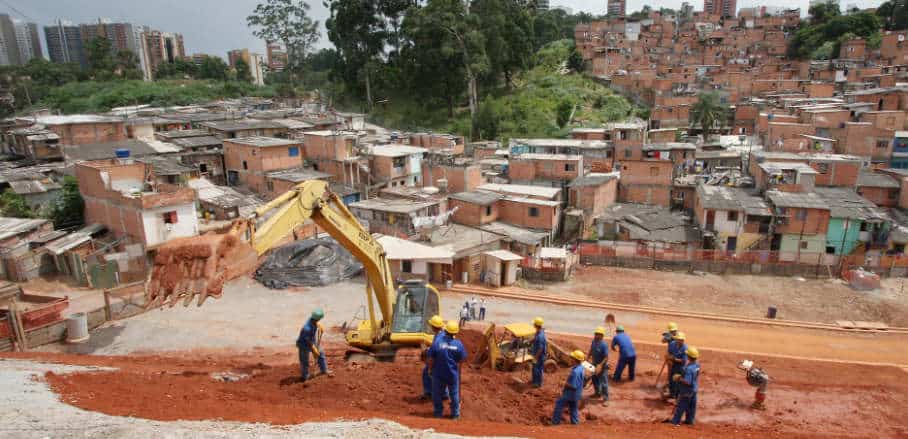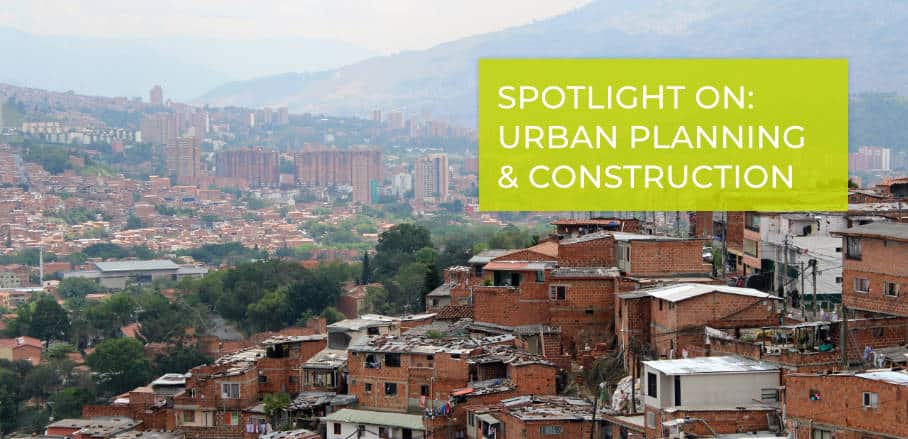Upgrading Precarious Neighbourhoods is Key for Post-Pandemic Recovery
The COVID-19 pandemic pushed the planet to ‘stay at home’ and ‘wash hands’. But in Latin America and the Caribbean, more than 100 million inhabitants lack adequate housing and sanitation. Could upgrading precarious neighbourhoods hold the key for post-pandemic recovery? By Anacláudia Rossbach et al.
Despite the rapid ongoing urbanisation in the region, cities in Latin America and the Caribbean (LAC) continue to grow at the expense of the least privileged. Generally, lower-income populations are still settled in informal or precarious neighbourhoods characterised by poverty, environmental degradation, climate risks, with little or no access to quality public utilities, health services, digital connection and social facilities. The current pandemic has thus exacerbated an already dire situation. Neighbourhood upgrading, however, may hold promising potential for the region.
Neighbourhood Upgrading in LAC: A Brief History
LAC has long-standing experience in the field of neighbourhood upgrading. There has been a consensus among state and non-state actors alike that the most socially and economically desirable outcomes are those based on preventing evictions and on promoting strategies to settle populations in areas that they already inhabit. Since the 1980s, and very markedly, from the 1990s, the main responses to improve living conditions in precarious settlements have thus ranged from those limited to regularising land/housing ownership to integrated neighbourhood upgrading programmes.

Moravia, a paradigmatic case of Neighbourhood Upgrading in Medellin, Colombia © Catalina Ortiz, 2019
In LAC, neighbourhood upgrading includes, but is not limited to, the integration of informal settlements into the city, investments to improve infrastructure’s quality, and the linking of programmes and projects aimed at addressing social problems, such as improving livelihoods or decreasing the level of violence. After well-known experiences developed in the 1990s, such as Favela-Bairro, from the 2000s on, Medellin, Colombia became a paradigmatic case for addressing neighbourhood upgrading within a city-wide planning framework of urban equality.
The Medellin experience inspired other cities across the region to introduce models aimed at focusing social and economic inclusion policies on vulnerable urban population zones. In Chile, the “Quiero Mi Barrio” (“I love my neighbourhood”) programme represents a milestone in intervening in the formal city by improving housing conditions, public spaces and basic services as well as by building community cohesion and organisation.
In addition, integrated upgrading experience in LAC has tended to adopt a city-wide approach, coinciding with robust approaches that are part of wider urban land planning processes, including the city-region. Precarious settlements are part of interrelated territorial systems – for instance, rural-urban links, and the functional relationship between agglomerations of cities or water flows at a regional or basin level. This takes on major relevance when facing the climate crisis and our common challenges regarding water as cities globally are experiencing more frequent and severe floods or water shortages – particularly in LAC, which is the second region in the world most prone to hydro-meteorological and other types of natural phenomena with destructive potential.

Quiero mi barrio upgrading programme “Parque Chile – Barrios Ignacio Serrano y Norte Grande” © Quiero mi barrio, 2014
Also, countries such as Colombia, Brazil, Mexico, Ecuador, Argentina and Bolivia have incorporated the “social function of the land” or the “right to the city” into their national legal frameworks and allow infrastructure to be provided at the local level on land with ambiguous ownership, on public land and even on private or environmentally protected areas.
Post-COVID-19: Building Back Better
As cities in LAC face more complex and interrelated challenges, including the COVID-19 crisis, neighbourhood upgrading now tends to promote the building of territorial and multiscale alliances. For instance, during the pandemic, in many LAC cities, it became apparent that civil society is often the first line of response in precarious urban settlements at the neighbourhood and district level. From strengthening multilevel solidarity to providing economic initiatives around food security and strategies for prevention, sanitation and income relief – it would not have been possible without bottom-up approaches. Indeed, the crisis has demonstrated that coordinating and co-producing responses with the people create much more effective solutions and interventions on the ground.
In addition, a series of more than 30 multisectoral exchanges conducted between 2017-2020 in the context of the Housing Laboratories (LAVs) of the Urban Housing Practitioner Hub (UHPH), has identified critical issues to consider when designing improvement processes which could set the stage for a successful post-pandemic recovery in precarious neighbourhoods.
The 2020 LAVs have especially noted a growing consensus on the importance of incorporating a green perspective into productive sectors and the construction of housing and infrastructure in cities. Indeed, out-of-the-box thinking is needed to continue linking a diversity of actors, building synergistic alliances, promoting equitable participation of vulnerable sectors, and developing integrated policies, programmes and funding.

São Paulo, Paraisopolis © Cities Alliance
The multidimensional crisis of the pandemic has also been defined as a crisis of care and prompts us to think of housing as an essential care infrastructure. Challenges ahead remain, moreover, with how COVID-19 has deepened inequalities for constituencies such as women, girls and migrants, which demand a special focus on the provision of housing, psychosocial support and economic inclusion.
Yet, processes such the LAVs, have created multisectoral and multidisciplinary exchanges for sharing experiences on housing and habitat in the region, and are working collectively towards supporting public policy, mobilising key stakeholders, creating critical mass and opening spaces for knowledge and practices exchange in LAC.
As a matter of fact, facing the current pandemic and as a result of the LAVs’ work, different participants – Cities Alliance, Habitat for Humanity, TECHO, Habitat International Coalition, COiNVITE, UCLG Committee, RIVHA, UHPH, DPU-Bartlett UCL, Global Platform for the Right to the City and UN-Habitat – have committed their efforts to guarantee the right to the city of diverse precarious neighbourhoods, positively impacting cities in LAC. These organisations collectively call for action on neighbourhood upgrading based on the Decalogue for Participatory Slum Upgrading. The decalogue serves as a roadmap to champion an intersectoral regional alliance to implement its priorities based on promoting synergies for solidarity to imagine and generate a more just post-pandemic future.
